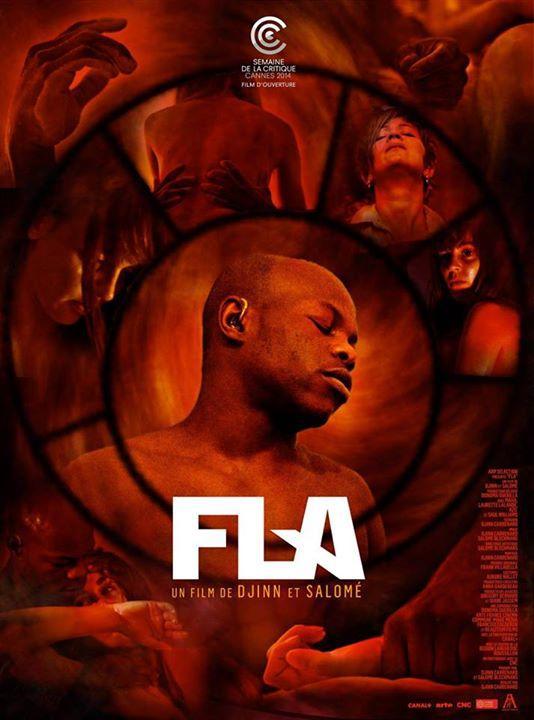Semaine de la Critique screening - review - FLA (Faire: L'Amour) by Djinn Carrénard
 The improbable international title FLA, seemingly serving the purpose of putting an emphasis on the film’s French title Faire: L’Amour, somewhat introduced the air of arthouse pretentiousness that stalks this film by Djinn Carrénard and “artistic director” Salome Blechmans. Even the confidence that is further implied with the film’s eccentric style ends up feeling messy more than audacious and intelligent.
The improbable international title FLA, seemingly serving the purpose of putting an emphasis on the film’s French title Faire: L’Amour, somewhat introduced the air of arthouse pretentiousness that stalks this film by Djinn Carrénard and “artistic director” Salome Blechmans. Even the confidence that is further implied with the film’s eccentric style ends up feeling messy more than audacious and intelligent.
But FLA’s greatest weak spot lies in its characters, much too flawed and unappealing to even be considered anti-heroes. It’s second greatest weak point is that, though the film has a lot to say within its narrative and examination of human relationships, it is not enough to forgive its nearly three hour length that makes the whole experience daunting, exhausting and exhaustive.
The plot is essentially a convoluted love triangle largely driven by the central character of Ousmane, a French rapper (interpreted by real like French rapper Azu) who mysteriously becomes deaf after a trip to the sea, who falls in love with two sisters. The catch is that he is an evasive man who gets away with murder by using his deafness as an excuse to avoid his real life problems and isolate himself from the rest of the world. The lead female characters in the story are no better, with their own obnoxiousness revealed unceremoniously and uncomfortably by Carrenard and Blechmans.
 Though it is true that the very fact of faithful representation of human imperfection is indeed brave, it is also true that an emotional connection between characters and audience is almost out of the question. The gap between audience and characters is further widened by the damned yet impressive preciousness of the visual style employed. FLA was in fact constantly shot with two cameras, one more modern and another recalling the nostalgia of old Super 8 home videos. The striking contrast holds up well before it inevitably gets old and lets the true emotions of the film feel weaker and weaker. Nevertheless, it is quite audacious in its arthouse approach and with its intention of unceremoniously clashing the old and new both narratively, stylistically and thematically – a choice strengthened by the popularity of such apps as Instagram and the constant rise in popularity of analogic technology.
Though it is true that the very fact of faithful representation of human imperfection is indeed brave, it is also true that an emotional connection between characters and audience is almost out of the question. The gap between audience and characters is further widened by the damned yet impressive preciousness of the visual style employed. FLA was in fact constantly shot with two cameras, one more modern and another recalling the nostalgia of old Super 8 home videos. The striking contrast holds up well before it inevitably gets old and lets the true emotions of the film feel weaker and weaker. Nevertheless, it is quite audacious in its arthouse approach and with its intention of unceremoniously clashing the old and new both narratively, stylistically and thematically – a choice strengthened by the popularity of such apps as Instagram and the constant rise in popularity of analogic technology.
A down and dirty flawed work of reflection upon relationships, a times treading on Malickian waters but all too often confused and even random, there are many elements that confirm Carrenard as an interesting filmmaker, but not enough to deem his latest work impressive. At this point it must be noted that the production was troubled and lengthy – with its filmmakers striving for exclusive artistic power. Ironically one can’t help but wonder by the end whether a strong-minded producer may have been able to pull a handbrake on the wildly loose nature of the final work, which is sadly and yet undoubtedly far too overwhelming for its own good.